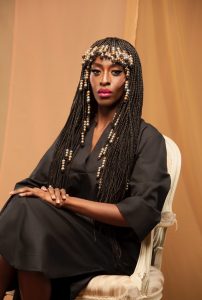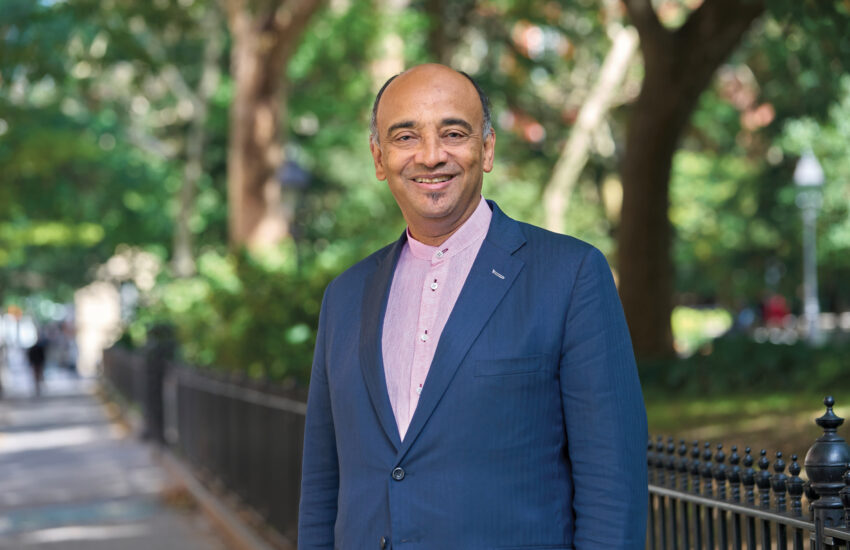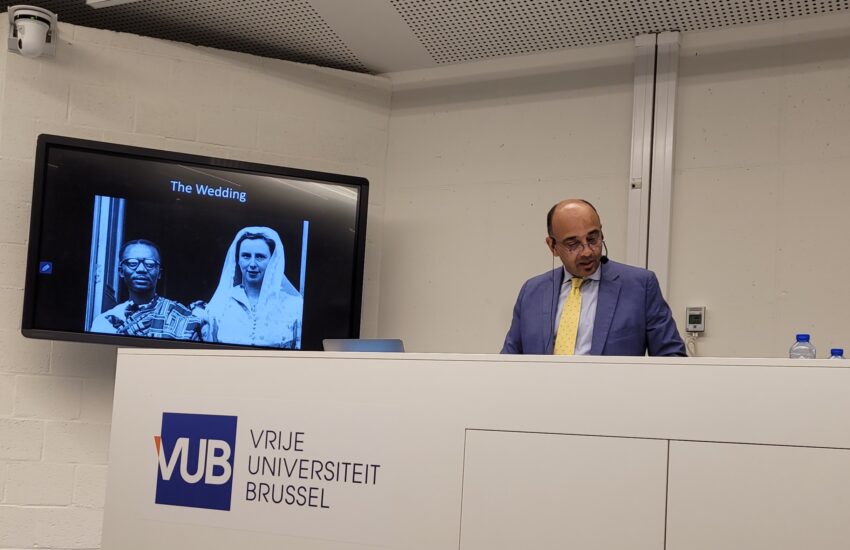Sheila Nortley: Authentic Illusions
Sheila Nortley: Authentic Illusions
Afropean’s Tommy Evans converses with the multi-talented screenwriter, director, producer and actor Sheila Nortley. Sheila candidly tackles the challenges and rewards of bringing creative visions to life on the big screen as an independent filmmaker, as well as working with Ashley Walters who stars in her forthcoming film “The Strangers” which depicts a dystopian future not far removed from today’s incendiary political climate.
TE: How did you get into filmmaking?
SN: I started filming at 9 years old when my mum bought me a toy camera. It was called a Tyco video camera and I’ll never forget it. With that I’d shoot my sisters and my cousins, anyone who I could get involved. Obviously, the Tyco was very limited: it was black and white and you couldn’t go far – you had to plug it into the VCR. I then studied Media as one of my A-Levels, focusing on video production and I loved it, I couldn’t get out of the editing suites. It was a very organic process as I then studied Media and Communications at uni but the area I excelled the most in was production. I started a production company and would film events; we had access to the common room and would east jump record the ACS events. From there, we shot music videos, which were really straightforward.
TE: Anyone I might have heard of?
SN: Not at that stage. It was anyone who said they were a rapper! We’d be like: okay, yeah, we’ll shoot your video for a few hundred. No celebrities. In my final year at uni, two friends and I made our first proper short film called ‘The Hydra’ that we entered into film festivals, including one at the BFI. From there it became a love affair with film. I didn’t want to do anything other than that.
TE: You’ve done some acting as well. Do you have a preference being in front of or behind the camera?
SN: Absolutely behind the camera.
TE: I knew that but I had to ask…
SN: That was at a stage of my life where I enjoyed all the opportunities and challenges that came up but I didn’t actually go for the acting role. Someone was auditioning for a part in a film that I was already on board of as an associate producer. We’d needed someone to read opposite the auditionees that day. As I did so, I heard the director Stephen Lloyd Jackson tell Magda the cinematographer to get me on film too. He watched over the footage and then invited me to audition for the role. I said okay, I’ll give it a go and ended up getting the role. I had no intention of being an actress and have no intention of being an actress, but I learnt a lot about the acting process. I developed a deep-rooted respect for the truth and honesty actors have to bring to each role. When we think of acting it’s someone telling a story and they have to pretend to be sad or happy but real acting is about honesty. You have to draw upon genuine emotion and pull that to the surface; it’s such a skill and an art. I learnt to respect the craft a lot more from that experience.
TE: I often refer to acting as conjuring “authentic illusions” – for an audience to emotionally invest in the performance it has to feel real.
SN: Exactly.
TE: You’ve worked as an actor, director, producer and writer. There are so many interlocking and overlapping aspects to your repertoire that it must make you a more powerful creative.
SN: Absolutely. The interesting thing about filmmaking is that it’s essentially story telling – an ancient craft using modern technology in a contemporary context, so as a filmmaker you have to look at how you tell your story. I ended up producing accidentally, only because I wanted to make a film and did everything a producer would do. The labels and titles came secondarily: I need to tell a story, how do I do it? I need to edit, I learn how, I do it so I’m an editor. I need to direct these actors so they give the best possible performance, okay, I’m directing. I need to write a script: I learn how, I write it – that makes me a screenwriter. Once I’d experienced everything I realised who I was and where my strengths lay and that was as a screenwriter.
TE: Do you ever find it difficult to delegate when you’re so competent in multiple disciplines?
SN: It’s the opposite in fact. I’m very aware of my strengths and consequently what I’m not so good at. Filmmaking is very collaborative, it’s not the type of art form in which you can sit yourself in a room and close yourself off. Maybe writing, to some extent.
TE From my experience of writing a book and a PhD thesis I’d completely agree.
SN: But generally filmmaking is a collaborative process – even as a screenwriter you have to liaise with the director and casting director. It’s very collaborative so there has to be an element of trust and respect. If I’m directing, the respect I give my cinematographer is paramount because that’s his or her specialism and passion – I don’t want to belittle anyone in their respective field. You elevate each other, which essentially elevates jumpers for sale the story, and when it appears on the big screen you’re left with… magic! Another thing I’ve learnt from my experiences so far is that there’s such a fine line between the business and art of filmmaking. Plus we’re living in an age where everyone wants to be famous. It’s quite a dangerous time to be an artist as there’s so much narcissism involved with celebrity culture. You have to continuously question yourself and your work. Who is this about? Why am I making this? Why am I telling this story? Is it about me and self-glorification? Or is it an opportunity for me to change things? In the social media age, life online really revolves around self-promotion: how you look and whom you speak to. That’s one of the reasons why I had to take myself away – which I did for three years – to re-evaluate what I needed to do on this earth as a screenwriter and how I could use what I’ve been given to give back. In this industry it’s always a battle between ego, art and business.
TE: There’s some interesting ideas addressed in the trailer for The Strangers. What are you trying to accomplish with the project?
SN: The Strangers was something given to me about six years ago and I turned it into a screenplay. The characters manifested in my thoughts and I typed the story out developing it over the years. One of my mentors told me the question you must ask yourself with everything you do is: what’s my propaganda? What’s the message I want to communicate? Everything in the world of media is propaganda one way or another. What we have now, particularly with this fame-chasing generation, is that there is no message; people just want to make films. However, the way I’ve always seen film is that it’s a very powerful medium and it can be like giving a child a gun: potentially dangerous. So when I wrote the script I asked myself: what’s my propaganda? What’s the message I want to share with the world? The Strangers is essentially about the search for truth: it’s set in a society where religion has been banned and in the current climate that’s not too far from reality. The real world is often scarier than fiction in many cases. Embedded within the film’s particularly contemporary issues of religion, culture and politics are universal stories of love and brotherhood – there’s a lot there. It’s a film I’ve been waiting a long time to share and it’s finally in the process of being made. I’m very happy.
TE: You used the term propaganda, which I find fascinating. I believe Malcolm X once delivered a lecture critiquing ‘Improper Propaganda’ but what you’re espousing is an opposing approach: positive propaganda.
SN: Absolutely. Propaganda does have a negative connotation of manipulation but everything in the media, whether overtly or covertly, is trying to tell you something or sell you something. This is something I studied at university. We’re constantly surrounded by data in this information era and we have to dissect what is being sold to us, not just products but ideas. When I say propaganda it might be a counter-propaganda that challenges the narrative. Its positive or negative value depends on your individual perspective.
TE: You’ve worked with Ashley Walters; what was that like?
SN: I first met him in 2010 and we just clicked. I got back in touch with him in 2013 for a TV pilot and again it was all love. I think that a lot of people see him as a celebrity but he’s just an incredibly talented actor and, more importantly, a beautiful human being. The respect I have for him is reciprocated which means a lot to me. Even when I disappeared for three years and then turned up again in my hijab – he’s not the type [to be] swayed by the external. He continues to support me to this day so when I contacted him about The Strangers his exact words were: Sheila, whatever you’re doing, I’m down. This was before he’d even seen the script. So when he came on the set I asked him, “Ashley. Why?” He said, “Because you’re real.” I’m just grateful to have beautiful people around me and he’s one of them. And I have to add here that because he is one of the biggest Black-British actors here in the UK, I get asked about him a lot – and not asked so much about other beautiful people I’ve had around me who I appreciate greatly too such as Abi Rufai, Aaron Fontaine, Nadine Mills, Andy Mundy-Castle, Saraiya Bah, Sakeena Achato, Daniel Bailey, and all my friends and family.
TE: I feel the same way. I had a similar – albeit slightly longer – hiatus from the arts and entertainment sector but upon my return I’ve experienced so much good will from all the real people in the music industry. They’re happy to see me grow and be creative in my own way even if differs to what I was doing previously.
SN: People respect authenticity. People admire creatives with talent, real passion and real life experience and give them the credit they deserve. Having said that, some don’t, but it’s each to their own.
TE: It’s their loss, isn’t it? Finally, what are the positives and negatives of working as an independent filmmaker?
SN: The challenges with indie films, I’d say, are financial. A friend of mine, the director Stephen Lloyd Jackson, told me of a saying: “Filmmaking is a rich man’s hobby.” It’s not like poetry where you need minimal resources: a pen, some paper or a laptop. To make a film, you might have the most amazing idea but at the very minimum you’ll need a camera, some lighting, a crew and so on. It’s something that also usually requires an investor and even if you have people willing to invest in your vision, you don’t get a guaranteed return. That’s the most difficult aspect. The benefits: if that’s who you are then you have no other choice but to be yourself and make mechanical bull for sale films and flourish and blossom and grow in it. As an independent filmmaker you do have total control over what you do so I wouldn’t trade it for anything.
TE: A sporting analogy comes to mind when you referred to filmmaking as a rich person’s hobby: it’s similar to Formula 1 for which the driver needs a very fast car and a team of mechanics. Poetry, however, is like soccer: you just need a football and some jumpers for goalposts and that’s it!
SN: Trust me, there’s so many times I’ve had an idea then I’m thinking, now what? It took me six years to write the script for The Strangers and even last night, someone said something and I was so inspired I thought to myself I need to incorporate that into a scene. It always feels like an on-going process. After six years of writing it’s not the end; it’s just the beginning.



